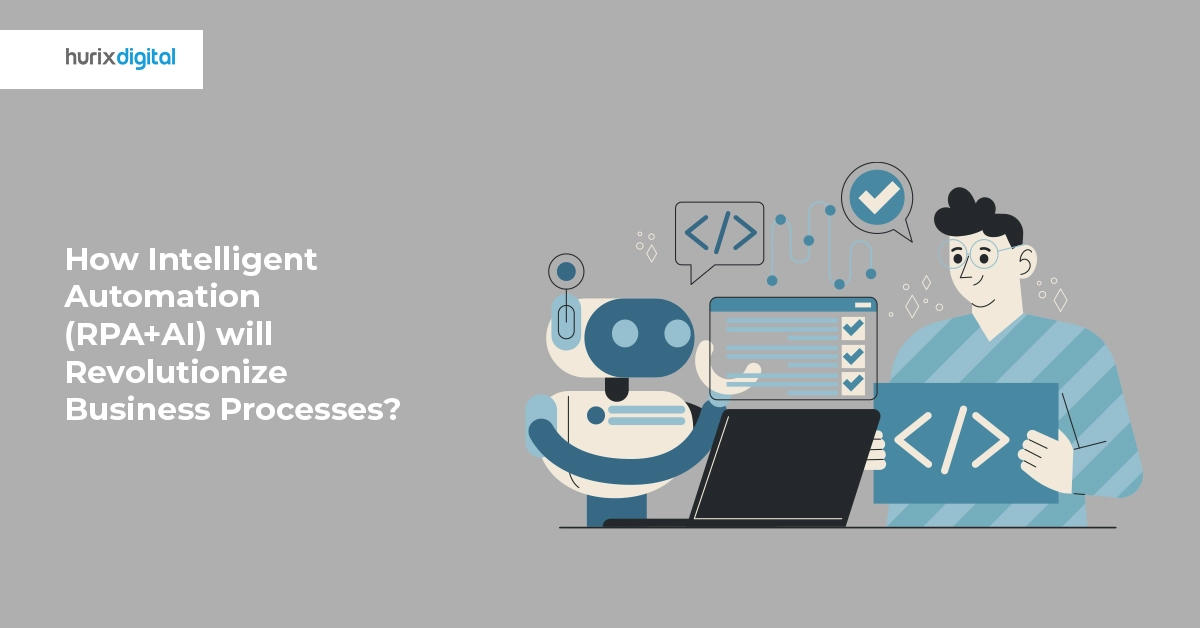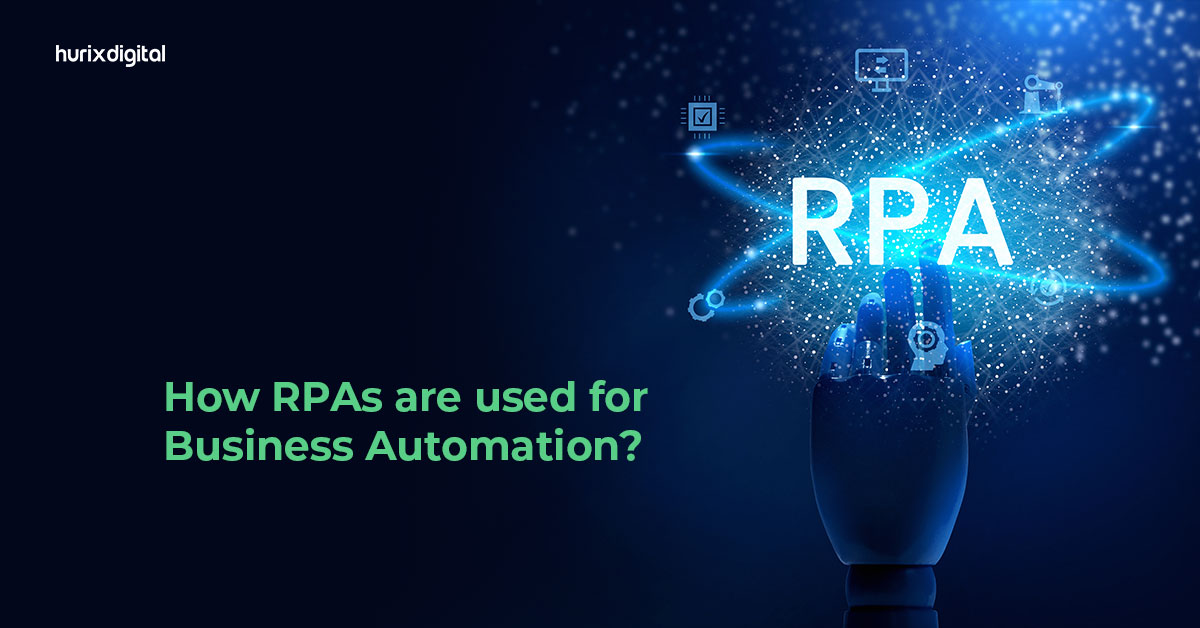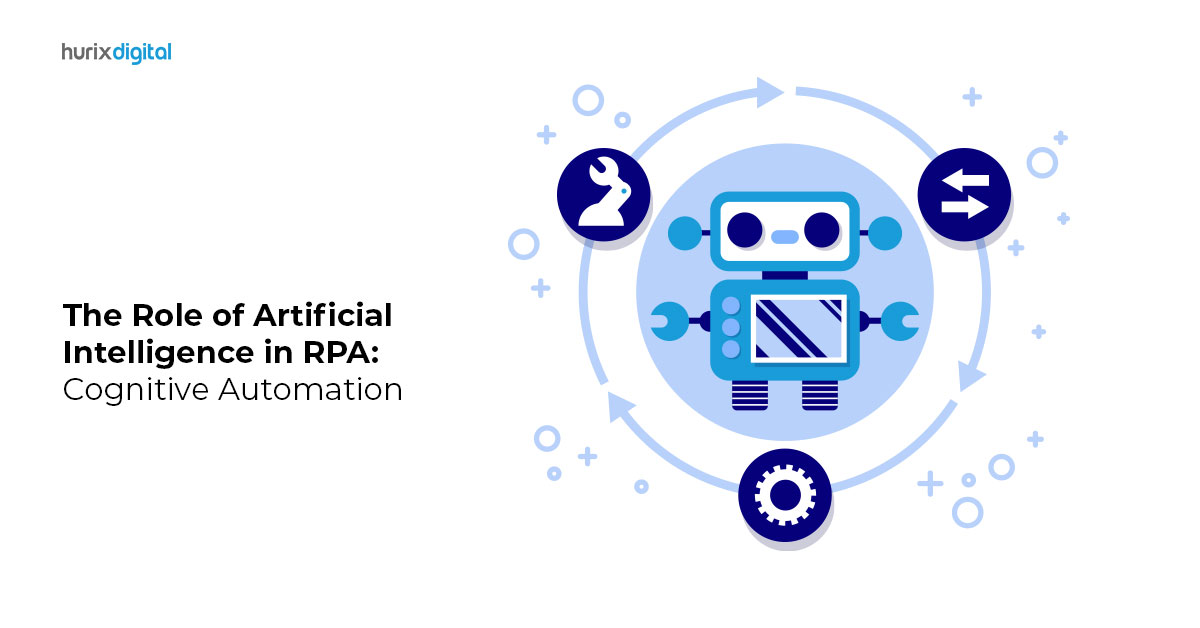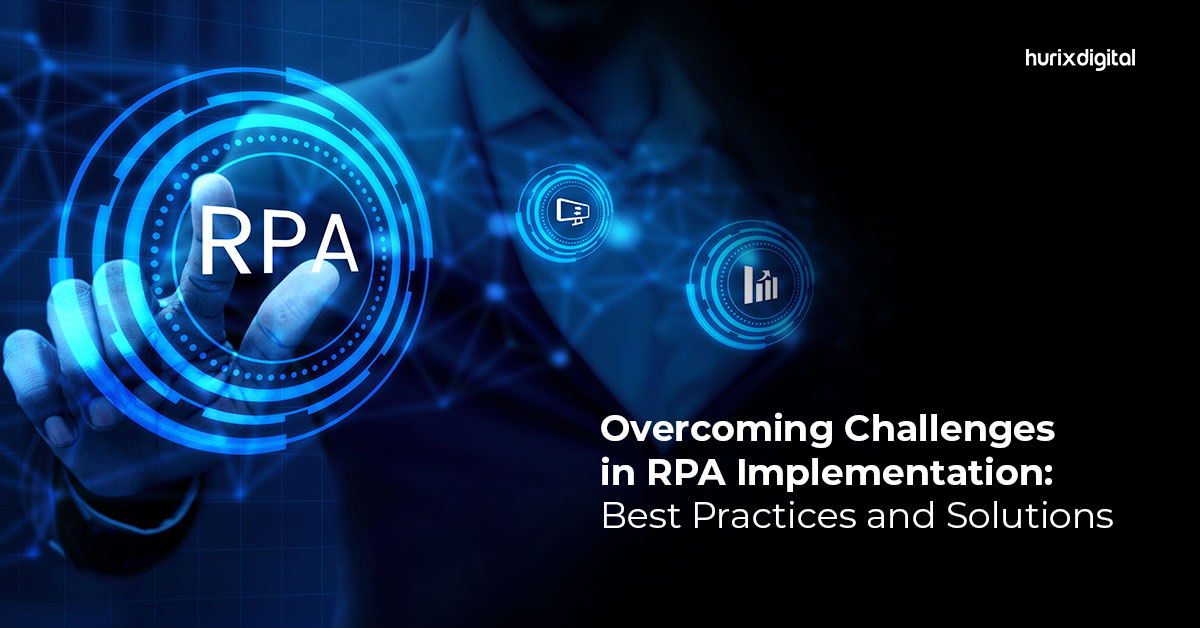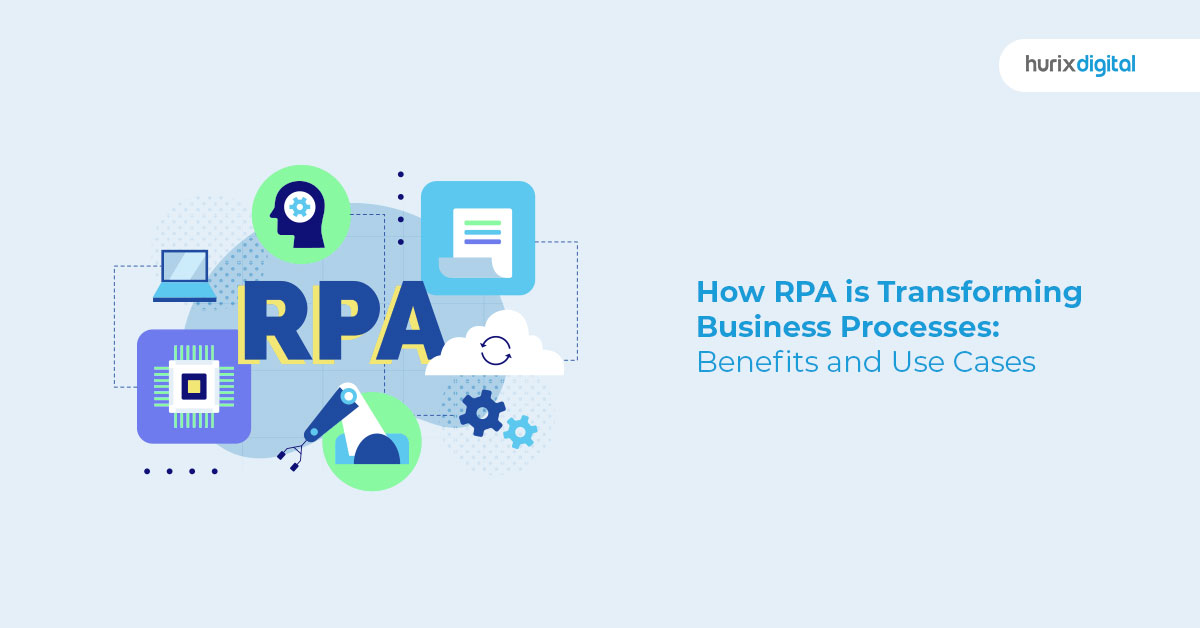
How RPA is Transforming Business Processes: Benefits and Use Cases
Summary
Explore how Robotic Process Automation (RPA) is transforming business processes, including its benefits, use cases, and the impact on operational efficiency and cost reduction.
Table of Contents:
- Introduction
- RPA Tools in Finance and Banking
- RPA Tools in Retail
- RPA Tools in Manufacturing
- RPA Tools in Information Technology
- RPA Tools in Healthcare
- RPA Tools in Logistics
- Wrapping Up
Introduction
Robotic process automation (RPA) has swept businesses in a tidal wave of improvements – whether it be efficiency, ROI, or productivity. RPA tools have become the most important offering of any business analysis services company.
In fact, according to a report by Acceleration Economy, the highest percentage of RPA adoption today is observed in the manufacturing sector, standing at 35%. It is closely followed by Technology at 31% and Healthcare at 10%.
The blog explores several important benefits and the use cases that various industries delegate to intelligent automation. Let’s understand how RPA can manage business processes autonomously and efficiently.
Also Read: How RPAs are used for Business Automation?
RPA Tools in Finance and Banking
Finance and Banking is an industry that requires intensive documentation, approval, cross-checking, monitoring, and cross-departmental coordination. It is fraught with inefficiencies, which robotic process automation has helped streamline significantly, delivering the following benefits as a bonus:
- Better organization of customer data that improves storage and retrieval.
- Reduction in manual errors occurring from data entry.
- Improvement in operational efficiency.
Several use cases make RPA tools central in the Finance and Banking sector:
- Credit Checks: Businesses delegate the work of loan credit checks to bots authorized to tally the customer’s credit line against loan disbursement parameters.
- Data Entry: Customer information is stored in a centralized repository to facilitate automated data entry whenever needed.
- KYC Processes: Bots significantly streamline the Know Your Customer processes by automating the repetitive parts.
- Application verification: Banks accelerate process completion by automating application verification using RPA.
- Customer Connect: Bots handle tasks like opening a bank account or establishing customer self-help channels.
RPA Tools in Retail
Retail is an extremely customer-focused industry and is sensitive to fluctuations in demand. Retail businesses need to stay updated with market data and consumer behavior to stay at the top of their game – process automation tools facilitate this endeavor.
Benefits:
- Reduction in delivery risks.
- Improved ability to meet customer demand.
- Improved branding and promotion campaigns.
- Value delivery to customers through smart analytics.
- Improved customer support.
- Enhanced product categorization for improved browsing experience.
Use Cases:
- Inventory Management: One of the trickiest parts of maintaining a retail business is balancing inventory with demand and supply. Using RPA, companies achieve the desired automation in business for inventories to auto-update with each sale or return.
- Invoice Processing: This repetitive task is ideal for a bot to manage automatically in the background while your salespersons attend to the customers.
- Sales Analytics: The key parameter to help a retail business capitalize on a trend is keenly studying sales analytics using robotic process automation.
RPA Tools in Manufacturing
Referring again to the report by Acceleration Economy, Manufacturing is the industry that employs RPA to the maximum extent. Business process automation in manufacturing has significant positive impacts:
Benefits:
- Improvements in back-office operations like creating purchase orders, client-vendor communications, and more.
- Mitigation of the risk of labor shortage through automating floor processes.
- Reduction in wastage of raw materials and resources through automated resource monitoring.
- Improvement in the monitoring of equipment health through IoT.
Use Cases:
- Bill of Materials: This is the most important document for a manufacturing facility that determines material billing. RPA tools automate the process and eliminate manual errors in bills.
- Administration and Reporting: To properly gauge the performance of a manufacturing facility, it is important to receive timely and accurate reports. Businesses today use automation robots to monitor the facility and auto-generate reports on computers, helping to streamline the entire process while reducing manual intervention.
RPA Tools in Information Technology
It appears counterintuitive to implement robotic process automation in the IT industry – however, its utility for such businesses is thoroughly logical, given the following benefits:
Benefits:
- A tremendous increase in throughput by using robots that continue processes 24×7.
- Acceleration in IT processes like checking code and debugging.
- Achieving 100% accuracy.
Use Cases:
- Task Duplication: Process duplication requires consistency. Since robots run on algorithms, the results they deliver are consistent. IT companies use RPA to duplicate development tasks without variations and deviations.
- Systems Security: For securing sessions with access control, IT companies leverage automation to log out of coding or access sessions automatically, improving the security of the whole environment.
RPA Tools in Healthcare
Healthcare is an extremely sensitive industry involving patient data and regional and global compliance regulations. Adopting robotic process automation delivers the following benefits:
Benefits:
- Improved compliance with global and regional regulations concerning patient data.
- Improving clinical outcomes through keeping relevant patient data ready and accessible in case of emergencies and at the point of care.
- RPA makes facility operations highly scalable.
Use Cases:
- Scheduling Appointments: All the systems in a healthcare facility can be connected to an ERP. RPA is then leveraged to schedule patient appointments based on staff availability.
- Managing Insurance Claims: This is one of the most time-saving applications of RPA in healthcare. Automation of claims and settlement helps save personnel time and attention that can be used to treat those in need.
RPA Tools in Logistics
Logistics is a complicated industry that doesn’t just deal with shipping but also with cross-border compliances, customs, fuel, and so much more. RPA gives logistics businesses a massive set of advantages:
Benefits:
- The task of processing orders in heavy volumes can be easily automated.
- RPA can help automate invoice generation and intimation.
- For customers, RPA provides a way to track their shipments in real-time.
Use Cases:
- Scheduling Shipments: RPA tools have access to collated data that enables them to monitor available vehicles, analyze memos and letters of all the shipments, and schedule them automatically.
- Delivery Notifications: RPA systems are increasingly leveraged to send shipment updates and other status notifications directly to clients via their preferred channels.
Also Read: Top 6 Ways to Improve Efficiency with RPA in Higher Education
Wrapping Up
Every industry has benefitted from robotic process automation tools in some way. Digital learning platforms today provide several automation capacities to educators that enable them to:
- Automate assessments and generate performance reports of the learners.
- Leverage AI to help students pace their lessons.
- Providing cost-effective lesson management by automating repetitive tasks like batch printing or mass communications/notifications.
Hurix Digital provides intelligent solutions for businesses seeking robotic process automation features from digital learning modules. Get in touch to learn more about how Hurix Digital’s workforce learning solutions enable automation for your organization.

SVP & Head – Hurix Technology Solutions
Global Delivery head with 25 years of working experience in NYC investment banks and fintech companies. Hands-on technology delivery management and program management, accountable for stakeholder relationships, Strategic roadmap, P&L, Revenue growth, Account Management, and employee satisfaction.
